Bristol's new Brunel hospital opens its doors
- Published
10 years in the making - the brand new £430m Brunel building at Southmead hospital in Bristol has opened its doors.
The move has been planned with military precision as 800 patients are transferred from Southmead and Frenchay hospitals.
BBC News looks at the story behind the numbers.
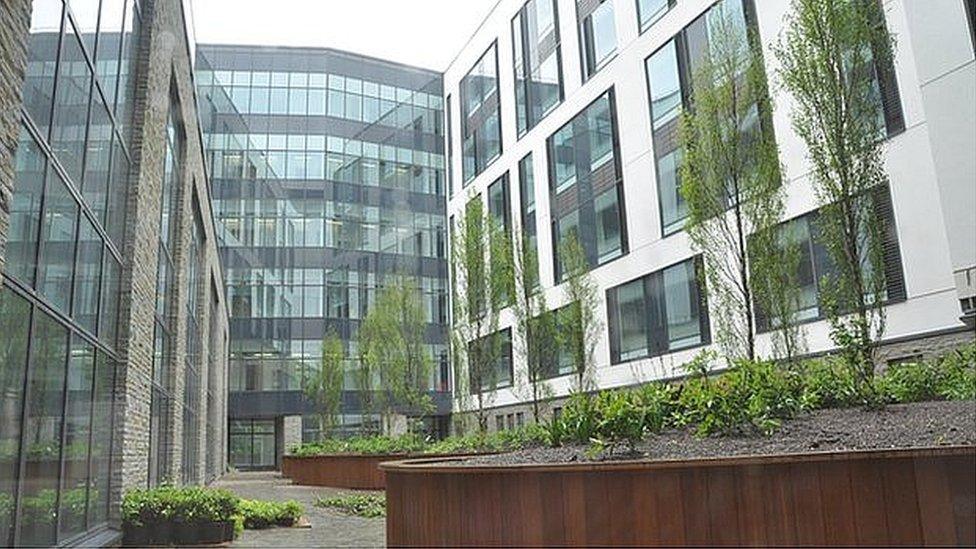
100ft tall
An imposing building, the new hospital is held up as a benchmark for the future of hospital design. At 100ft (31m), it is as tall as Westminster Abbey at one end.

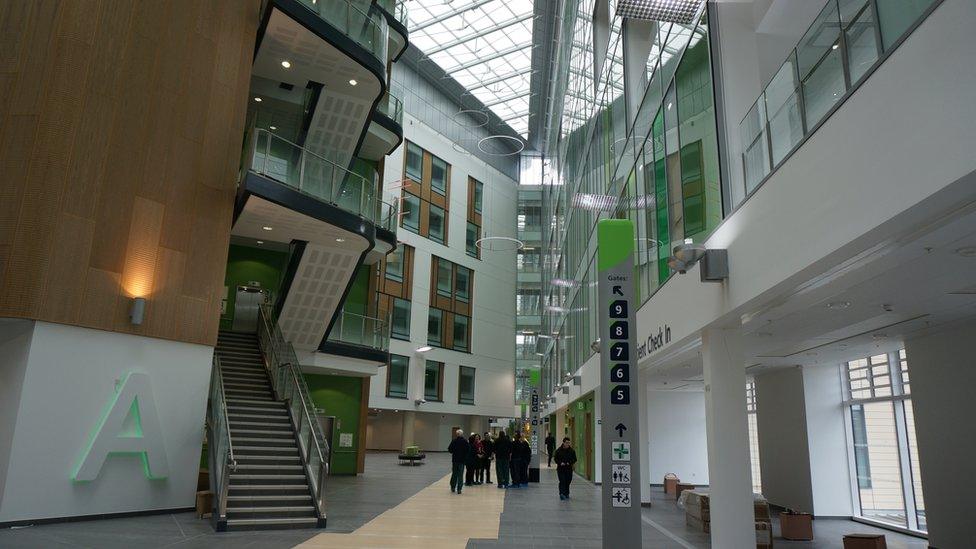
700 trees
Some 700 trees have been planted in landscaped gardens and courtyards, while five bronze art sculptures act as signposts around the building. The whole site covers about 28 acres.

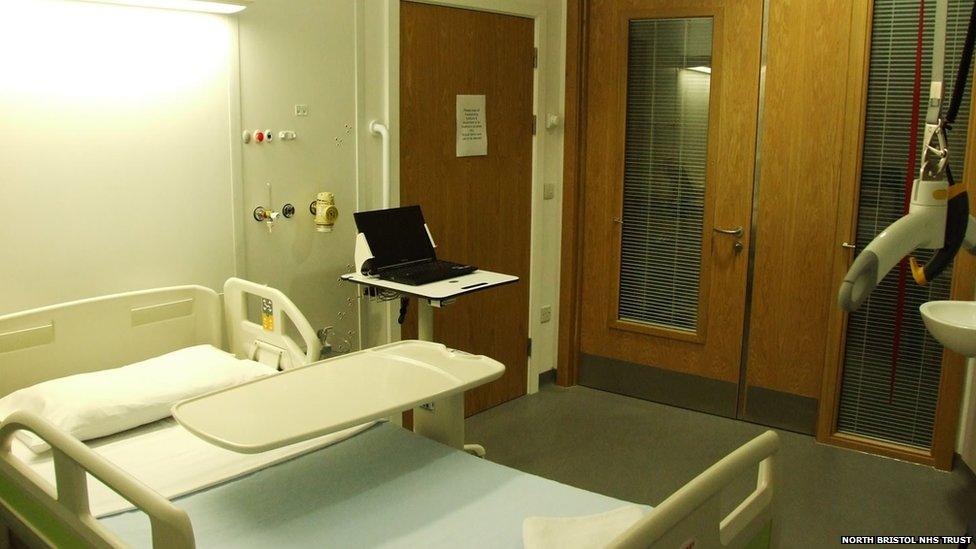
800 beds, 24 operating theatres
The Brunel building will see the end of traditional wards.
Some 75% of the 802 beds will be in single rooms with en-suite facilities - more single rooms than any other NHS hospital in the country.
Chief executive Andrea Young said: "These state of the art facilities for our surgeons, consultants and nurses will help them at the leading edge of their skills".
Up to 800 staff will work at the new building, having transferred from Southmead and Frenchay hospitals

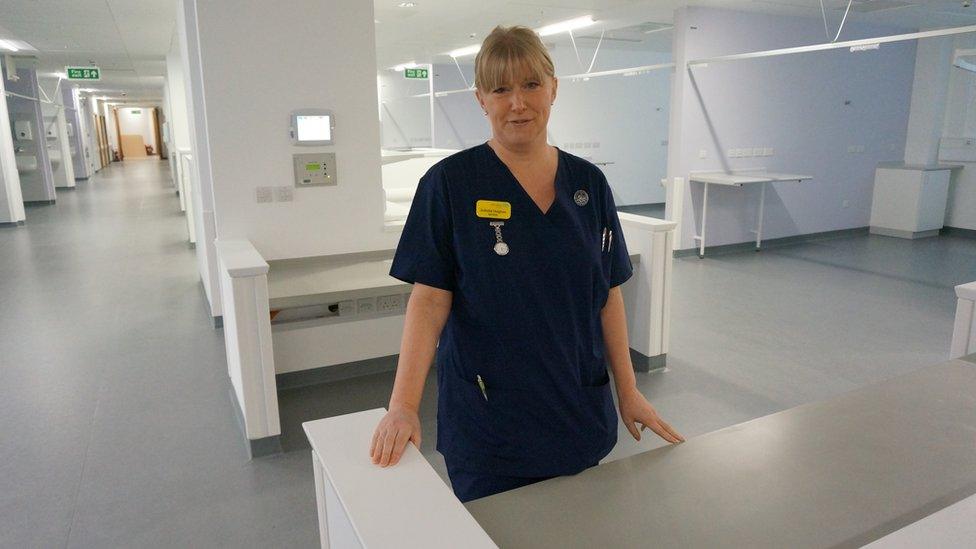
02:00 19 May
At precisely 02:00 BST on 19 May, the old Frenchay emergency department closed and a new A&E opened immediately in the new Brunel building.
Juliette Hughes, A&E matron, said they have been involved in planning every detail of the unit "right down to where we want the light switches and plugs to be".

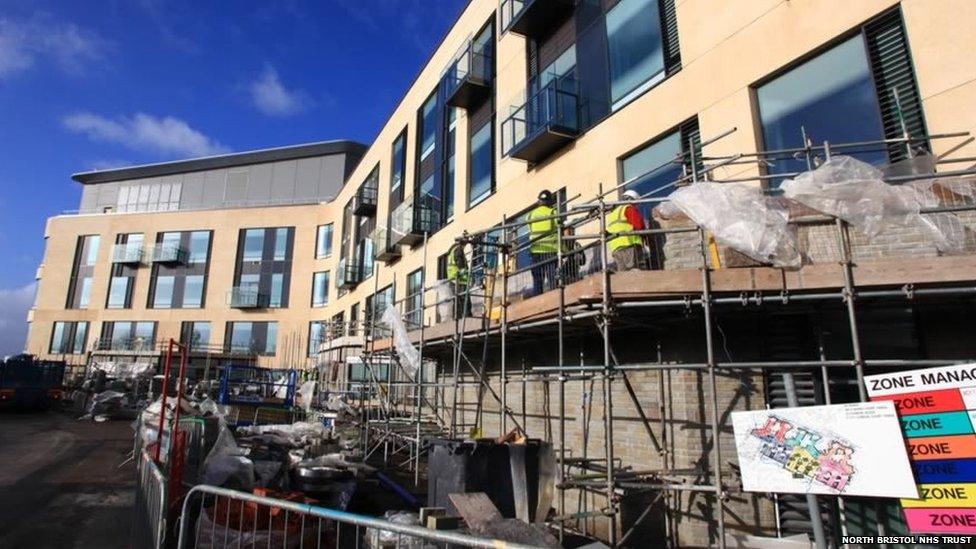
6,500 jobs
More than 6,500 people worked on Brunel building.
Keith Hutton, from contractor Carillion, said it employed about 85% of its workforce from the Bristol area.

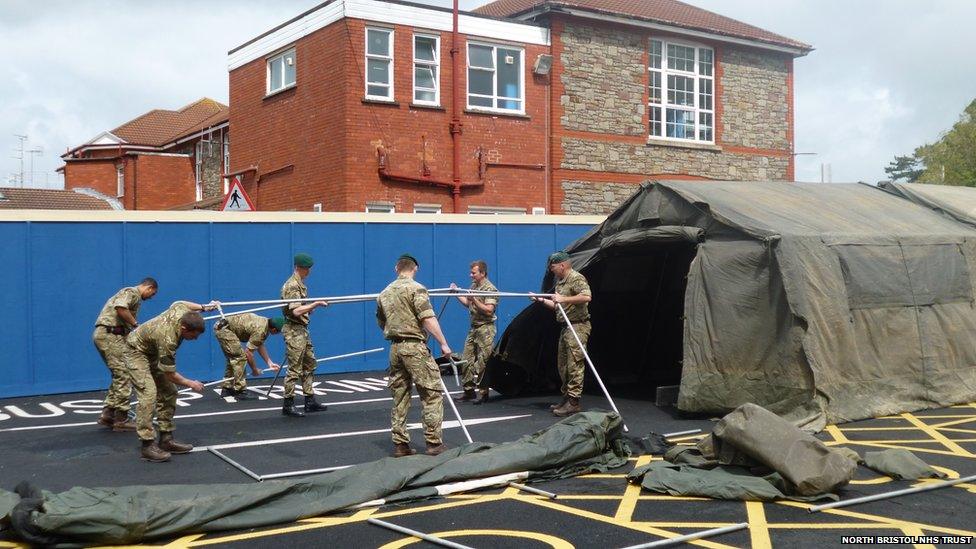
8 Ambulances, 8 Commandos
Eight members of Bristol-based 30 commando erected a 80m long walkway to protect patients as they transferred from Southmead hospital into the new building.
Eight ambulances will transport patients from Frenchay to Southmead making journeys throughout the days of patient transfers.

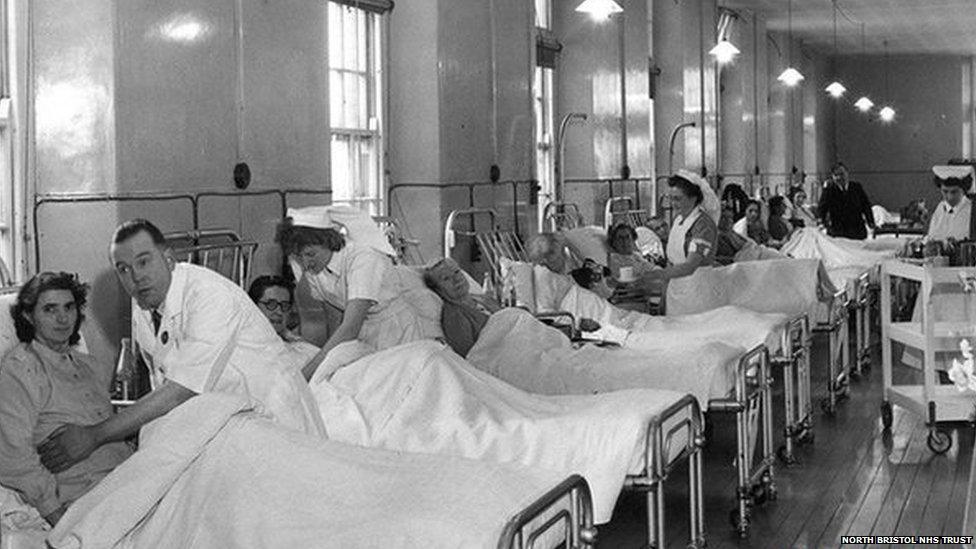
History
Parts of Southmead and Frenchay hospital buildings date back to the 1900s.
Clinical Matron Kenny Gale said coping with the conditions was becoming increasingly difficult.
- Published23 May 2014
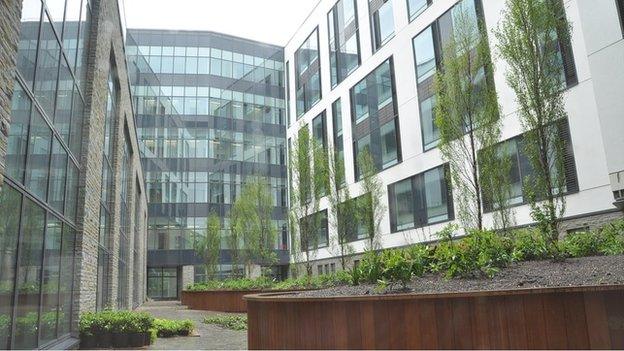
- Published22 May 2014
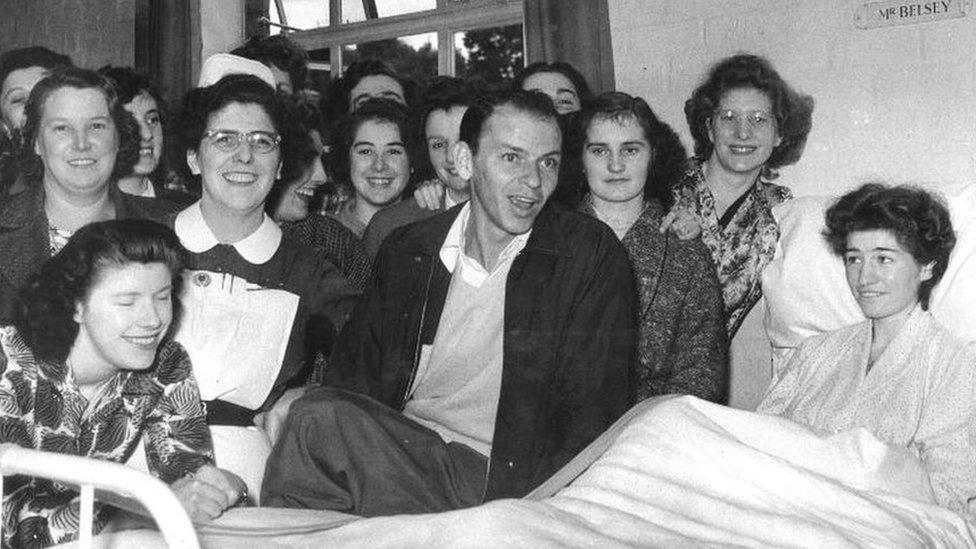
- Published6 May 2014
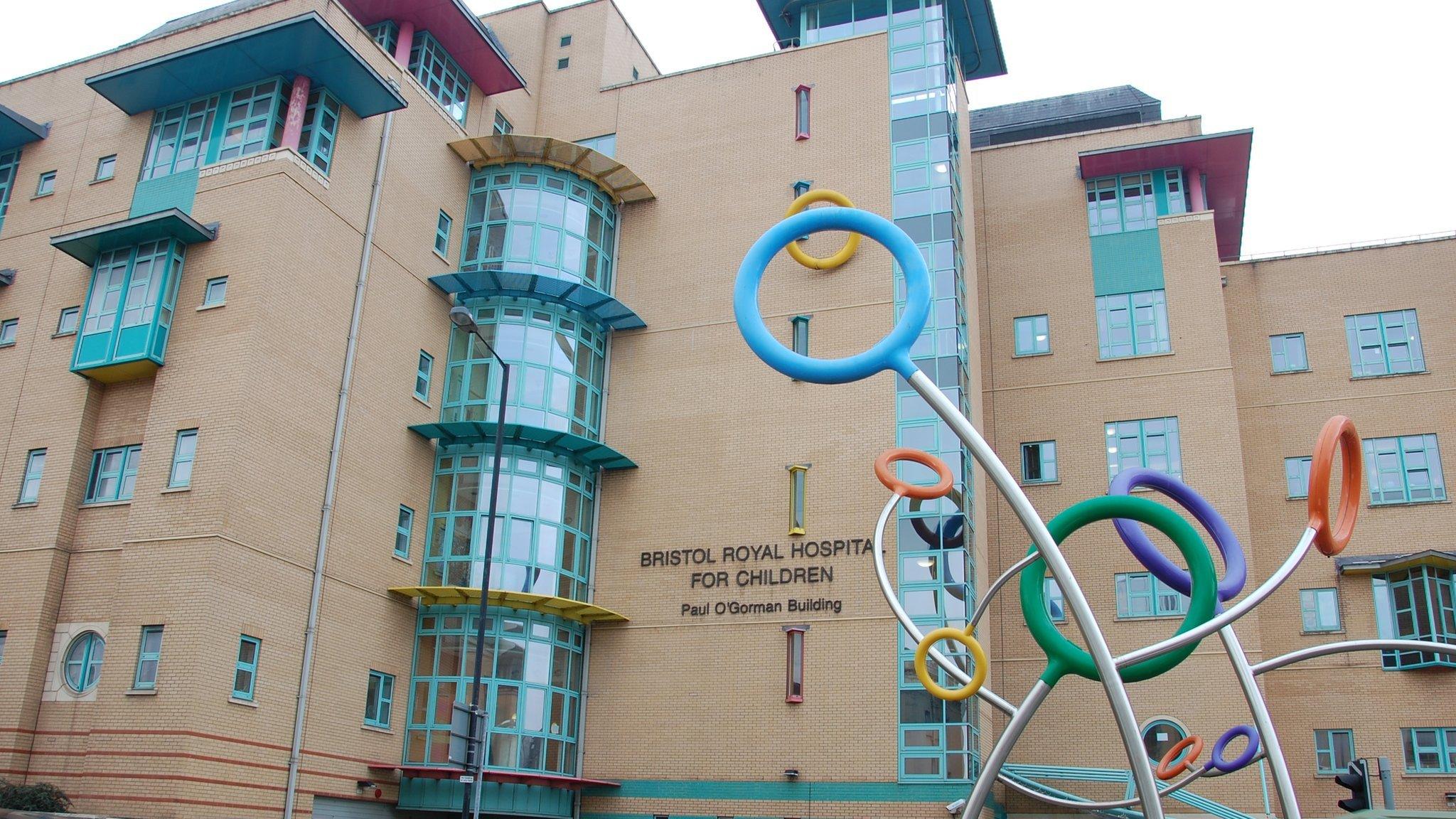
- Published27 March 2014
